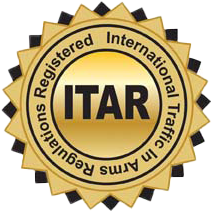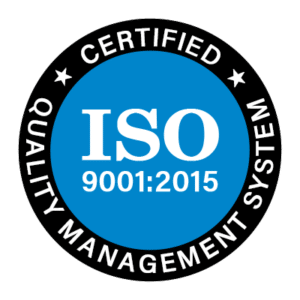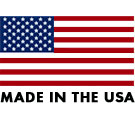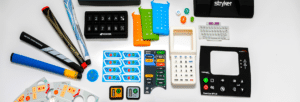Conductive coatings are necessary to protect and enhance a variety of products. Bringing both adaptability and rapid scalability to the mix, such coatings make up about 25 percent solids of non-oxidizing copper – this is how the surface gets its conductivity. Today we’ll go over the four main kinds of industrial coatings, which are:
- Chemical
- Abrasion
- Adhesive
- Conductive
The kind you need in product creation will depend on what you intend to use it for. Si-Tech is well known for its use of proprietary silicone coatings. All keypads we manufacture are designed for a unique application. The functionality of your product is enhanced through a conductive silicone coating.
Before we get into each type, let’s go over the benefits of conductive coatings:
10 Benefits to Conductive Coatings
There are many advantages to conductive coatings, especially ours, including:
- Low-cost design
- Adaptability to a wide spectrum of product designs and part sizes
- Easy to use
- Flexibility during production process
- Rapid scalability for volume production
- Minimizes capital investment
- Low contact resistance
- Homogeneous cross link for a more permanent bond
- Design flexibility to meet different conductive pad shapes and uneven surfaces
- Zero flaking or chipping
In our processes, we apply SiCoat V, which is our own wear resistant conductive coating used on all silicone keypad products. This coating works in perfect harmony with our screened silicone inks, adhesive primer, and liquid injection molding process.
If you are in any of these industries, you can benefit from products with these coatings:
- Telecommunications
- Laboratory instrumentation
- Industrial equipment
- Point of sales
- Electronics
- Military
- Aerospace
- Automotive
- Machinery
- Medical
Types of Coatings
Now, let’s delve deeper into what each of the four coatings consists of.
1. Chemical
With Si Coat II™, you get a superior surface finish, flexible silicone base, seamless coating and total keypad surface protection. This is a chemical resistant coating system that we developed just for silicone rubber applications. If you need protection against petroleum-based products, such as WD40 and motor oil, this coating is the best. It’s resilient and flexible, and also resists chemical swelling and wear.
2. Abrasion
Abrasion-resistant coatings are best in instances where your product will be undergoing a lot of friction wears, grinding and rubbing. These coatings provide protection for metals against seizing and galling, for instance.
3. Adhesive
This is a hot melt or water-based adhesive coating that adds these benefits:
- Can be reactivated with heat to adhere to other products
- Strength
- Waterproof
- Primer to boost surface tension
- Pressure-sensitive adhesives
4. Conductive
Designed for higher temperature applications, it encourages or limits the flow of heat or electrical current into or out of your product. Thus, it can guard products and systems from anything from anti-static protection to thermal dissipation.
Contact Si-Tech
To learn more about the conductive coatings we use, contact us today at 757-887-8488.








